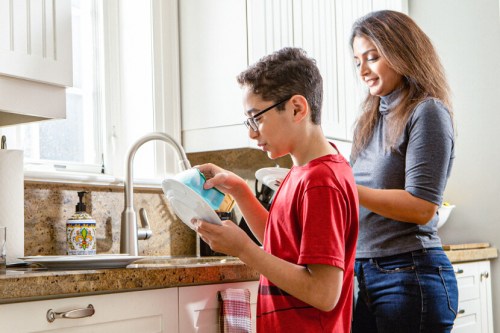FAQ
Assigning chores to kids is usually the easy part—getting kids to do the work can be more of a challenge. Parents can encourage their kids to do household chores by making chores a non-negotiable part of being a family, drafting a chore agreement, or printing off a chore chart to help kids manage their responsibilities. Praising kids for a job well done as well as tying an allowance to chores can also encourage them to help out around the home.
Like so many aspects of parenting, paying kids to do chores has no right or wrong answer. Part of being in a family is pitching in, so an allowance may blur those lines. Money isn’t the only value that can be exchanged for chores. Parents can exchange more screen time, a trip to the ice cream shop, or a family movie night for chores completed. The idea is to brainstorm something that has value to your child (like more independence or more of your time) instead of paying money.
You can lead a horse to water, but you can’t make it drink (or tidy its room!) One thing parents can do when kids won’t do chores is embrace natural consequences. If chores are tied to an allowance, then the natural consequence of not doing chores is not getting paid. Or if your teen is responsible for laundry, the natural consequences of skipping out on that chore is not having any clean clothes to wear.
There’s no hard and fast rules for how many chores your child should have each day. One way parents can determine the number of chores is by the amount of time it takes. For young kids, who can only manage five or 10 minutes a day, that could mean only one chore (such as picking up their toys). Older kids and teens should be able to handle more chores spread out during the day, depending on their other commitments like school work, part-time work, or extra-curricular activities.









